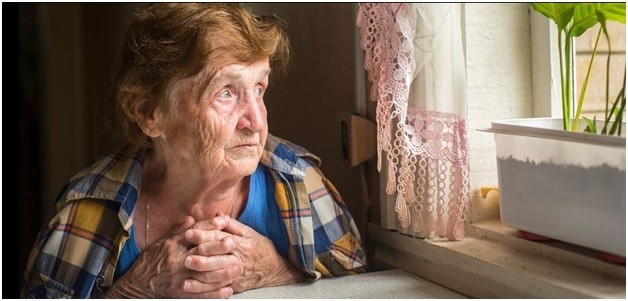Only 10 percent of Americans will die suddenly. The remainder of us (90 percent) will decline slowly, growing weaker until we die. Because this process is so gradual, we often don’t recognize that a loved one is approaching the final weeks of life. This may be why most Americans, around 80 percent, die in institutions, despite the fact that most Americans polled (85 percent) voice that they want to die at home. Perhaps the reason could be that we simply do not see it coming.
It is only natural that we would want to deny how seriously ill our loved one is. Denial protects us from the painful reality that we may soon lose someone precious to us. While denial can help us to cope, it also may interfere with making a plan that will guarantee that your loved one’s final months are spent in the place they choose, surrounded by friends and family.
Well-thought-out preparation, on the other hand, will allow us to choose where death will occur, participate more fully in our loved one’s care, make better decisions and achieve a measure of control over the coming months. We will feel peaceful despite living with uncertainty. In the future, after our loved one has died, we will reflect back on these final months, and be left with the deep comfort that comes from knowing that we did our best for someone we love at a very difficult time.
So what are the signs that an elderly person may be approaching the final months of life? There are many indicators, but in this article, we will discuss three common signs: weight loss, progressive weakness and infections.
There is a great deal of research that shows that weight loss by itself is a powerful indicator that an elderly person is approaching the final months of life. Just five percent to 10 percent loss of weight in six months can be significant. If a person is in a nursing home, it has been shown that as little as 10 percent loss of weight in six months will carry 85 percent mortality in the next six months. Weight loss is so significant that it can be an indicator for hospice care. It is commonly understood that elderly people approaching the final months of life naturally stop wanting food and fluids.
Another indicator is increasing dependency. Loss of weight leads to loss of muscle which leads to progressive weakness. This may start with having difficulty getting up from the chair. It progresses from needing assistance to transfer to being chair bound to eventually being mostly bed bound. This immobility also puts an elderly person at risk for skin breakdown and pneumonia.
A third indicator is propensity for developing infections. It is well known that there is a progressive decline in the power of the immune system with aging. Before the introduction of antibiotics in the 1940’s, many elderly people died from pneumonia. Pneumonia was called “the old man’s friend” as it promised a swift death. We may think of pneumonia as being curable, but many elderly people are at risk to contract pneumonia and at risk to die from pneumonia. If a person is older than 75, they have a six times greater chance of getting pneumonia than if they were 60 years old. This is because the lung has lost its elasticity. In addition, changes in the brain and nervous system affect their ability to cough up secretions, which is essential to overcoming pneumonia. Some elderly people have difficulty with swallowing and may cough while eating, inhaling liquid into their lungs. This is called aspiration, and can cause them to get pneumonia repeatedly. Some elderly people also develop infections of the urinary tract, which can be treated, but which further weaken the body.
Identifying early that your loved one is declining has many advantages. You can tell your health care provider how you want those final months to be, so he or she can support you in your plan. Services can be put in place at home or in a facility so that if a crisis arises, it can be managed without going to a hospital. If you are able to get hospice care in place, oxygen and medications for comfort will be on hand should a medical crisis arise. Nurses will do routine in-home assessments and advise you as to what you can expect. You and your family will be better prepared.
If you suspect your elderly loved one is declining, you can ask for a “hospice consult.” and a nurse will come to your home and advise you and your healthcare provider about eligibility. In-home support and availability of comfort measures is the key to successful care at the end of life.
Source: https://caregiver.com/articles/its_about_life/

